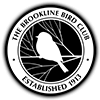Blue Hills Reservation, Norfolk, Massachusetts, US
May 24, 2022 6:30 AM – 8:30 AM
Protocol: Traveling
1.5 mile(s)
Checklist Comments: BBC trip, led by David Scott
21 species
Mourning Dove 3
Chimney Swift 1
Turkey Vulture 1
Red-tailed Hawk 2
Barred Owl 1 Mobbed by robins, chickadees and the gnatcatcher
Red-bellied Woodpecker 2
Eastern Wood-Pewee 1 Heard only
Eastern Phoebe 1 Heard only
Great Crested Flycatcher 1 Heard only
Red-eyed Vireo 2
Black-capped Chickadee 2
Blue-gray Gnatcatcher 1
American Robin 2
Chipping Sparrow 5
Field Sparrow 1
Eastern Towhee 2
Brown-headed Cowbird 1
Ovenbird 8
Worm-eating Warbler 2 Saw one just up from the police post, heard at least one more. Regular breeders here
Pine Warbler 1
Prairie Warbler 1
View this checklist online at https://ebird.org/checklist/S111197083
